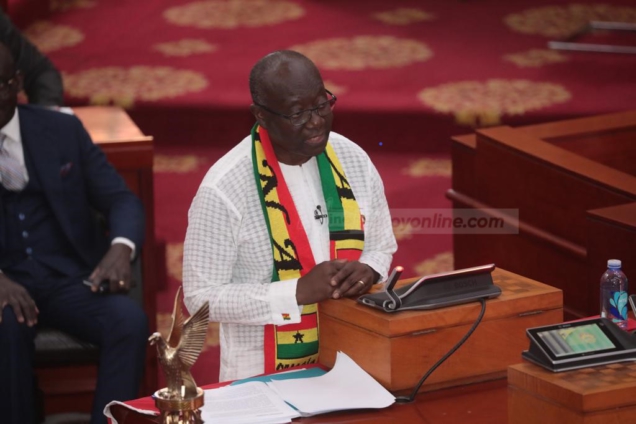The Minister of Finance, Ken Ofori-Atta has indicated in the 2023 budget statement that Ghana’s public debt has increased by GH₵93 billion ($6.53 billion at current rate) due to the depreciation of the Ghanaian cedi alone since the beginning of 2022.
Meanwhile, the bailout Ghana is seeking from the International Monetary Fund (IMF) amounts to just $3 billion compared to the addition to public debt due to depreciation.
According to the budget statement, the cedi has depreciated by 53.8% and 54.2% against the dollar as of October 2022 and November 2022. The massive depreciation has been due to the inability to access the International Capital Market due to the continuous credit rating downgrades. The tightening of domestic financing conditions and the increasing cost of borrowing has also contributed to further depreciation.
The Minister indicated that there has been a high demand for forex to finance the import bill, including the import of crude, and the financing of electricity has worsened the performance of the cedi and led to the high depreciation. Ghana’s import bill, the budget stated, exceeds US$10 billion annually. Considering the low foreign earnings, it has been difficult to meet the import requirements including crude oil and petroleum products of about US$400m (GH₵4.80 billion) a month. The Ministry of Finance also requires about US$1.0 billion per year to finance the lights in homes and workplaces.
Ghana and the IMF
Ghana is seeking a three-year Extended Credit Facility (ECF) programme of $3bn at the International Monetary Fund. This means that this potential bailout cannot even finance the debt accumulated as a result of the depreciation of the Ghanaian cedi.
The ECF is the Fund’s main tool for medium-term support to countries facing prolonged balance of payments problems, similar to Ghana’s. The duration of such arrangement is between three to four years and extendable to five years. In 2014, Ghana requested a similar arrangement and it lasted four years. However, the level of access and the final programme design is ultimately decided by the IMF Executive Board.
According to the IMF, an IMF-supported programme aims at providing space for Ghana to implement policies that will restore macroeconomic stability and strengthen debt sustainability while protecting the most vulnerable. The programme could help create the conditions for inclusive and sustainable growth and job creation. This will help anchor policy credibility, alleviate exchange rate pressures and provide catalytic effect on financing.
Latest Stories
-
Let’s prioritize research quality in higher education institutions for industrial growth-Prof. Nathaniel Boso
5 hours -
Herman Suede is set to release ‘How Dare You’ on April 24
9 hours -
Heal KATH: Kuapa Kokoo, Association of Garages donate 120k to support project
9 hours -
KNUST signs MOU with Valco Trust Fund, Bekwai Municipal Hospital to build student hostel
9 hours -
The influence Ronaldo has on people, Cadman Yamoah will have same on the next generation – Coach Goodwin
10 hours -
Gender Advocate Emelia Naa Ayeley Aryee Wins prestigious Merck Foundation Awards
11 hours -
South Africa bursary scandal suspects granted bail
11 hours -
Ecobank successfully repays $500m Eurobond due April 18
11 hours -
Re: Doe Adjaho, Torgbui Samlafo IV, call for Unity among Paramountcies in Anlo
12 hours -
Extortion and kidnap – a deadly journey across Mexico into the US
12 hours -
Rihanna says fashion has helped her personal ‘rediscovery’ after having children
12 hours -
Development Bank Ghana targets GH¢1bn funding for commercial banks in 2024
12 hours -
Shatta Movement apologises to Ghana Society of the Physically Disabled after backlash
13 hours -
Sammy Gyamfi writes: Tema-Mpakadan Railway Project; A railway line to nowhere
13 hours -
Bright Simons: Is the World Bank saving or harming Ghana?
14 hours

